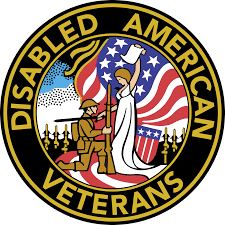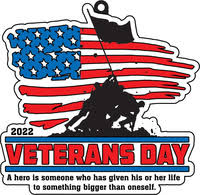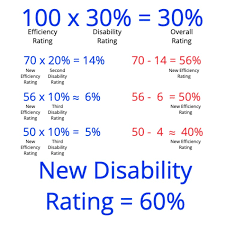Disabled American Veterans (DAV) is an organization dedicated to providing assistance to the men and women of the United States armed forces who have been disabled by their service. The organization was founded in 1920, and since that time it has provided support to millions of veterans in need.
The DAV provides a variety of services to disabled veterans, including financial assistance, medical care, educational benefits, employment opportunities, and legal aid. It also provides emotional support for those suffering from PTSD or other mental health issues. Additionally, the DAV offers a variety of programs designed to help veterans adjust to civilian life after their service. These programs include job training, housing support, and access to resources for veterans and their families.
The DAV also works with government agencies and organizations such as the Department of Veterans Affairs (VA) to ensure that disabled veterans receive the benefits they are entitled to. The organization advocates for legislation that will improve the quality of life for disabled veterans and works with other non-profit organizations on projects related to veteran affairs.
The DAV is committed to helping disabled veterans lead successful lives after leaving the military. The organization provides a wide range of services designed to meet individual needs and help them adjust back into civilian life. Through its various programs and initiatives, the DAV continues its mission of providing assistance and support for disabled veterans across the United States.
5 Tips for Understanding Disabled American Veterans
- Reach out for support: Disabled American Veterans (DAV) offers a wide range of services to help veterans and their families, including legal assistance, financial aid, and mental health support.
- Take advantage of the VA benefits: The Department of Veterans Affairs (VA) offers a variety of benefits for disabled veterans including disability compensation, educational assistance, home loan guaranty programs, vocational rehabilitation and employment services.
- Stay connected with other veterans: Joining local DAV chapters or other veteran organizations can help you stay connected with other veterans who are facing similar challenges as you.
- Advocate for change: Become an advocate for disabled American veterans by getting involved in policy issues that affect them at the state and national level.
- Seek professional help if needed: If you feel overwhelmed or need additional support, seek out professional counseling or therapy from a qualified mental health provider who specializes in working with disabled veterans.
Reach out for support: Disabled American Veterans (DAV) offers a wide range of services to help veterans and their families, including legal assistance, financial aid, and mental health support.
For many veterans, the transition from military to civilian life can be difficult. Disabled American Veterans (DAV) is here to help. DAV provides a wide range of services to veterans and their families, including legal assistance, financial aid, and mental health support.
Legal assistance can include help with filing for disability benefits or appealing a denied claim. Financial aid may include grants for education or housing, as well as emergency financial assistance. Mental health support includes counseling, peer support groups, and even PTSD treatment programs.
Additionally, DAV has local offices across the country that are staffed with experienced professionals who can provide individualized assistance. For those unable to visit an office in person, DAV also offers virtual resources such as live chat and online forums where veterans can connect with other veterans and get the support they need.
Reaching out for help is not always easy, but DAV makes it easier by providing a range of services designed specifically for veterans and their families. If you or someone you know is a veteran in need of assistance, don’t hesitate to reach out to Disabled American Veterans today.
Take advantage of the VA benefits: The Department of Veterans Affairs (VA) offers a variety of benefits for disabled veterans including disability compensation, educational assistance, home loan guaranty programs, vocational rehabilitation and employment services.
Disabled American veterans have access to a variety of benefits and services provided by the Department of Veterans Affairs (VA). These benefits can help veterans cope with the physical and emotional effects of their service, as well as providing financial assistance and other resources.
One of the most important benefits for disabled veterans is disability compensation. This benefit provides monthly payments to veterans who have disabilities that are related to their military service. The amount of money received depends on the severity of the disability and other factors.
In addition to disability compensation, disabled veterans may also qualify for educational assistance programs such as the Montgomery GI Bill, which provides money for college tuition and other educational expenses. VA also offers home loan guaranty programs, which can help veterans purchase a home by providing a government-backed loan with lower interest rates.
The VA also offers vocational rehabilitation and employment services for disabled veterans. This program helps veterans find employment that is suitable for their disability, as well as providing training and job placement assistance.
Disabled American veterans should take advantage of all the benefits available through the VA in order to better cope with their service-related disabilities. By doing so, they can ensure that they are receiving all the support they need in order to lead successful lives after their service has ended.
Stay connected with other veterans: Joining local DAV chapters or other veteran organizations can help you stay connected with other veterans who are facing similar challenges as you.
For disabled American veterans, staying connected with other veterans can be a great source of support. Joining local Disabled American Veterans (DAV) chapters or other veteran organizations can provide an opportunity to meet and connect with fellow veterans who are facing similar challenges.
Connecting with fellow veterans can provide a sense of camaraderie and understanding that can be hard to find in civilian life. It can also help disabled veterans stay up-to-date on the latest news and information related to benefits, services, and other resources available to them. Additionally, connecting with other veterans may provide access to valuable advice, insights, and experiences that may help them in their transition back into civilian life.
Veterans who are looking for ways to stay connected should consider joining local DAV chapters or other veteran organizations in their area. Doing so will allow them to meet new people and build relationships with fellow veterans who understand the unique challenges they face. Additionally, these groups often host events and activities that provide an opportunity for veterans to socialize and have fun while connecting with others who share similar experiences.
By staying connected with other disabled American veterans through local DAV chapters or other veteran organizations, disabled American veterans can benefit from a sense of community and support that’s hard to find elsewhere.
Advocate for change: Become an advocate for disabled American veterans by getting involved in policy issues that affect them at the state and national level.
As a nation, we owe a tremendous debt of gratitude to the brave men and women who have served in our armed forces. Unfortunately, many of these veterans return home with injuries that require long-term care and support. Disabled American Veterans (DAV) are those who have been injured or disabled while serving in the military.
The challenges faced by disabled veterans can be daunting and often require more than just medical attention. That is why it is important for all of us to become advocates for change on behalf of these heroes. By getting involved in policy issues that affect disabled American veterans at the state and national level, we can help ensure they receive the necessary benefits and services they deserve.
There are many ways to get involved in advocating for change on behalf of DAVs. You can contact your local representatives or senators to express your support for legislation that benefits disabled veterans or to voice your opposition to proposed laws that could adversely affect them. You can also join organizations like the Disabled American Veterans Foundation or Attend events such as Stand Down events which provide free services to homeless veterans and those at risk of becoming homeless. Additionally, you can volunteer with local veteran service organizations such as the Wounded Warrior Project which provides resources and support for injured service members and their families.
By advocating for change on behalf of disabled American veterans, we can make sure these heroes receive the respect, recognition, and resources they need to lead healthy, productive lives after their service has ended.
Seek professional help if needed: If you feel overwhelmed or need additional support, seek out professional counseling or therapy from a qualified mental health provider who specializes in working with disabled veterans.
Disabled American veterans face unique challenges in their daily lives, often struggling with feelings of isolation, depression, and anxiety. It is important for veterans to realize that seeking professional help is ok and can be beneficial in helping them manage their mental health.
Professional counseling or therapy from a qualified mental health provider who specializes in working with disabled veterans can be an invaluable source of support and guidance. These professionals understand the unique needs of disabled veterans and can provide specialized care tailored to their individual needs. Through therapy, veterans can learn how to better manage their emotions, cope with stressors, and develop skills to build healthier relationships.
It is important for disabled veterans to know that they are not alone in managing their mental health. Seeking professional help can make a real difference in improving quality of life and helping them feel more connected to others.




